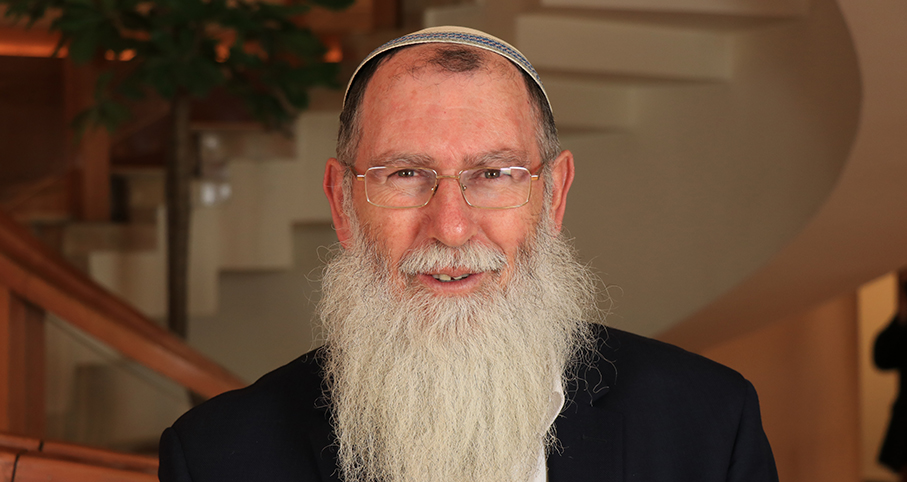Beit Midrash
- Sections
- Chemdat Yamim
- Bemare Habazak - Rabbis Questions
- Shabbat and Holidays
- Passover - Pesach
- Chol Hamoed
Answer: The main issue with the hachnasat sefer Torah for a new sefer Torah (as opposed to purchasing one or changing its venue) is writing its final letters, as the minhag is to do so on the day of the ceremony.
The mishna (Moed Katan 18b) says it is forbidden to write even a small part of a book on Chol Hamoed. The Rama (Orach Chayim 545:1) cites two opinions on whether it is permitted if the masses need the book after the chag and concludes that it is permitted if one uses simple, "non-artisan" writing. In other words, he understood that the mishna is referring to cases where there is not an acute need. These halachot follow the rule that simple work (ma’aseh hedyot) is permitted on Chol Hamoed for festival needs or communal needs, which are as significant even if they are for after the chag (Shulchan Aruch, OC 544:1).
Since writing a sefer Torah certainly needs an expert acting carefully (ma’asaeh uman), it should be forbidden on Chol Hamoed. The Shulchan Aruch (OC 545:2) does say that if there is no other sefer Torah for the community’s Torah reading, a sefer Torah can be finished on Chol Hamoed for that purpose. However, it does not sound like that is your predicament.
Despite the above, there has long been a phenomenon of hachnasot sefer Torah on Chol Hamoed. Some poskim (including Aruch Hashulchan, OC 545:5) criticize the practice. However, several poskim justify the practice when done in a certain way, which is anyway common.
Usually the main writing of the sefer Torah is complete days before the event, except that the last letters are written by the sefer’s owner and his honorees. To facilitate this, the sofer uses one of two systems: 1. Write the letters in very light ink, so that the donor writes on top to darken it. 2. Write hollow letters and have the donor fill them in. Some poskim suggest that in those cases the halachic writing already exists, in which case that which is left for the end is not a melacha (see discussion in B’tzel Hachochma IV:50). Moreover, even if it is a full melacha of writing, it is an example of ma’aseh hedyot, as a non-expert can follow the tracing or fill in the hollow letters. In that case, it is permitted for a simple mitzva even of an individual or an enhancement of the chag.
What mitzva or enhancement of the chag applies here? Some say it is the mitzva of having a sefer Torah. While some of the leniencies of Chol Hamoed apply only if one had to do the work at that time (which might not apply in your case), festival and mitzva needs can be done even if they could have been done at different times. Some question (see Minchat Elazar III:2) whether in our days, the writing of the sefer Torah is considered a mitzva, but that seems like a weak claim. In any case, since the whole celebration is such a joyous and chag-appropriate activity, all of its standard elements, which customarily include writing the last letters, are festival needs. (The poskim are not concerned with the possibility that the celebration impinges on the proper focus on the chag, which is the reason weddings are forbidden on Chol Hamoed (Chagiga 8a). A Torah celebration of this type is within the appropriate focus.) If the sefer Torah will be read from during the chag, including Simchat Torah, that should also be considered a mitzva purpose.
Thus, under the above conditions, it is permitted according to most poskim, including the Beit Yitzchak (Yoreh Deah II, addendum 20), Kaf Hachayim (545:6, based on the Sdei Chemed), and the contemporary Chol Hamoed K’hilcahato (6:24). As mentioned, there is also some history of leniency. Some poskim (Shevet Halevi III:96, B’tzel Hachochma, ibid.) are willing to be lenient only in the case of real need, which you indicate you have.
In summary, if the celebration is most appropriately done on Chol Hamoed, feel free to do it then. Make sure the sofer completes his part before Pesach and leaves any expert brush-up work for after chag. Mazal tov!

Bemare Habazak - Rabbis Questions (636)
Rabbi Daniel Mann
159 - Preparation for a Shabbat Evening Seder
160 - Hachnasat Sefer Torah on Chol Hamoed
161 - Stealing by Accident?
Load More

Rabbi Daniel Mann

Washing Hands with Soap on Yom Kippur
Tishrei 4 5776

Reciting Borei Nefashot on Food When One Will Still Drink
Sivan 3 5780

Standing for Parents in our Times
5775

Ribbit in a Loan from an Irrevocable Trust Fund
Adar 7 5777

Ask the Rabbi: Shehecheyanu on a New Shofar for Rosh
Rabbi Daniel Mann | Elul 5785

Ask the Rabbi: Giving Ma’asrot to the Intended Recipients
Rabbi Daniel Mann | Av 5785

Ask the Rabbi: Forgot to Remove Tefillin Before Musaf of Rosh Chodesh
Rabbi Daniel Mann | Kislev 5786























